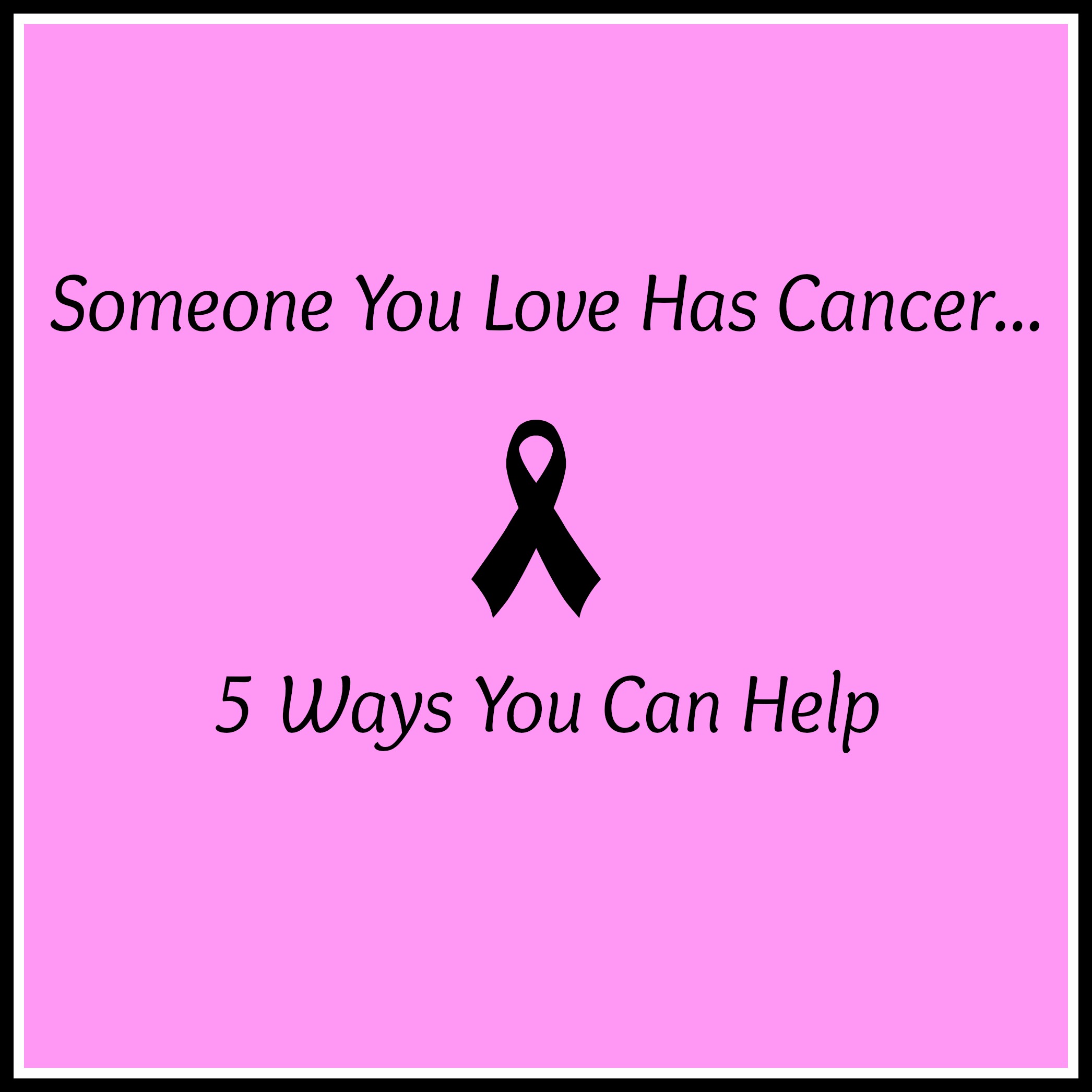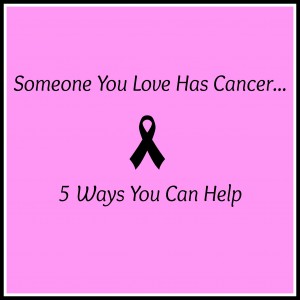I’m going to frame this post using the word “cancer,” but it can apply to any long-term illness, as my family well knows. The word “caregiver” refers to a person tending to the needs of the sick person, whether on an everyday basis, or through regular small, helpful acts.
When someone you love is sick, it can be devastating.
I’ve sat on both sides of the caregiver-patient aisle, and I generally think I’d rather have the cancer myself than watch someone I love struggle through it. As a caregiver, you feel powerless. You can’t do anything to change the situation, and no matter how much you help with doctor’s appointments, errands and meals, that feeling of powerlessness doesn’t go away. Even worse, you can’t vent those emotions to the person you’re caring for. You have to take the tone that he sets, whether it’s positive strength, or negative griping. You have to find somewhere else for your own emotions to go. This can be particularly hard when the person you’re caring for is the one you typically share with.
On the other side of the coin, being a caregiver can be extremely rewarding. There’s nothing like going through life challenges hand-in-hand with someone to cement and strengthen the bond between you forever.
There’s no one right away to handle this difficult situation, but I do have some tips that will help in most circumstances. I’ve considered this list carefully, and consulted not only my own experiences as a caregiver AND patient, but my friends’ similar experiences as well.
1. After the diagnosis, ask her what she needs from you. In many cases, the first answer may be “nothing.” That can be very difficult to handle, because you have that powerless feeling, and you want to do something, anything, to make things better for your loved one. But people who’ve just been diagnosed need space to come to terms with it, especially if he’s naturally stoic, or if she tends to withdraw. If this is the case, you need to walk a careful balance between allowing that space, and making sure she knows you’re always available to her.
2. When a few weeks have gone by, ask again. It takes time for someone to learn how to depend on others. After a few weeks, you may find that your loved one can summon the courage to tell you what he really needs. The good news is, as the cancer journey begins to unfold, your loved one will probably become very honest on this point. What’s the point in lying, shrugging things off or other forms of falsifying when you have cancer? This is when you’ll start to understand what role she wants you to play. Will you be the comic relief? The encouraging card-writer? The food-bringer? The hand-holder? Everyone has strengths that can be used to help another person through illness.
3. Actions trump gifts. Cancer patients get a lot of cards, flowers and fruit baskets. They don’t get as many offers to keep them company at chemo, distract them with romantic comedies and Mad Libs the day before surgery, or take over everyday chores like dog-walking and trash pickup. Offer these things with a willing heart and sensitive words, but don’t push if your loved one doesn’t want or isn’t yet ready to accept your help.
4. Maintain your support throughout the process. Cancer is a long journey; it often takes a year or more to eradicate even small, contained tumors. Patients often experience an outpouring of care and encouragement at the first shock of diagnosis, but support then dwindles over time, even though the tasks and treatments usually become more difficult, not less. Be there for your loved one beginning, middle and end. Be there for all the tough stuff so you can also be there at the finish line- hopefully, for a big celebration.
5. Find someone to be there for YOU. As I said in the beginning of the post, when you’re caring for someone, their emotions come first. It’s not fair, but that’s the way it is. However, you have just as much right to emotions as your loved one, and you need a way to express them. Find someone to talk to about your caregiver journey, preferably someone not involved in your cancer patient’s life (therapists are perfect for this). Make sure to take care of yourself as well: good sleep, exercise, journaling your thoughts and feelings, and keeping up with your favorite hobbies in a small way are all important during this time.
Were you ever a caregiver for someone? How did it make you feel?
This post is part of a series on cancer. See previous posts below:
I Was Radioactive In A Padded Yellow Room



2 thoughts on “Caregiver Dilemma: “Someone I Love Has Cancer. How Can I Help?””